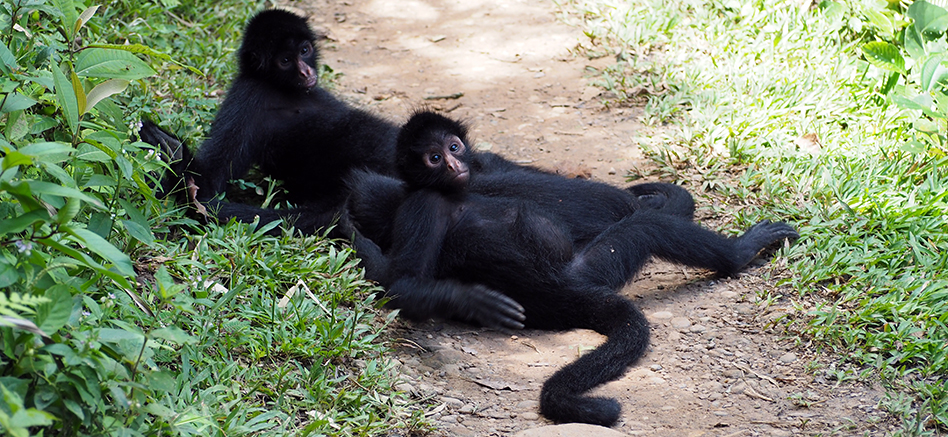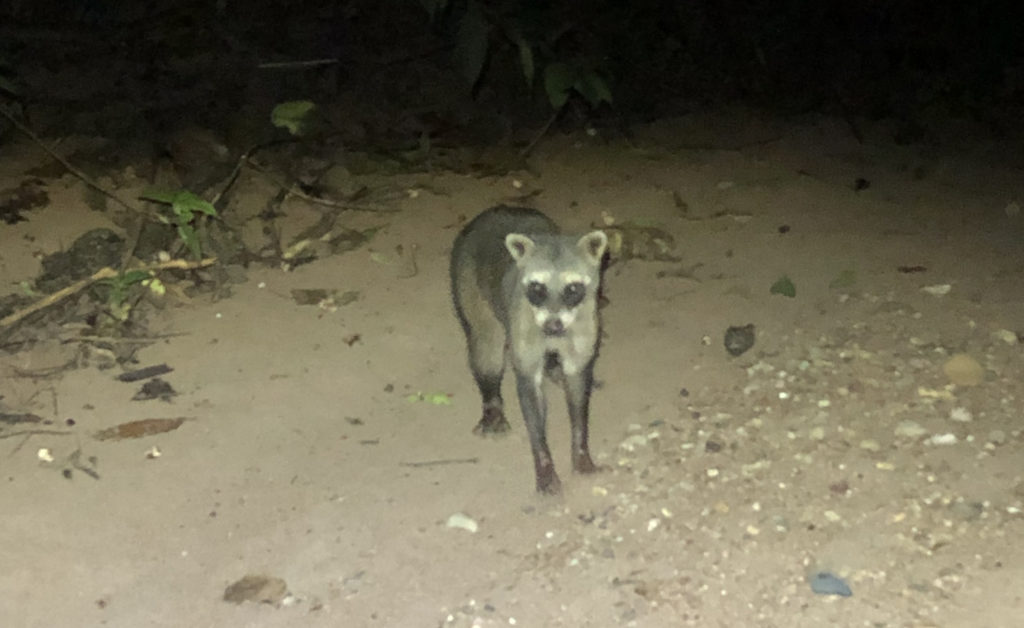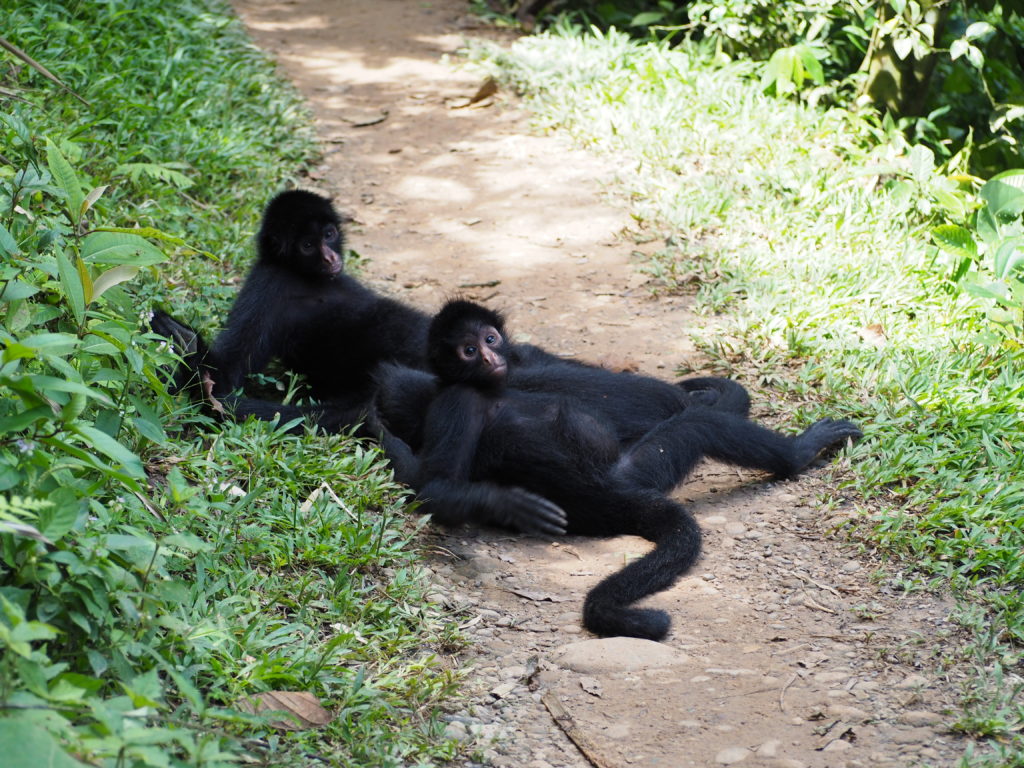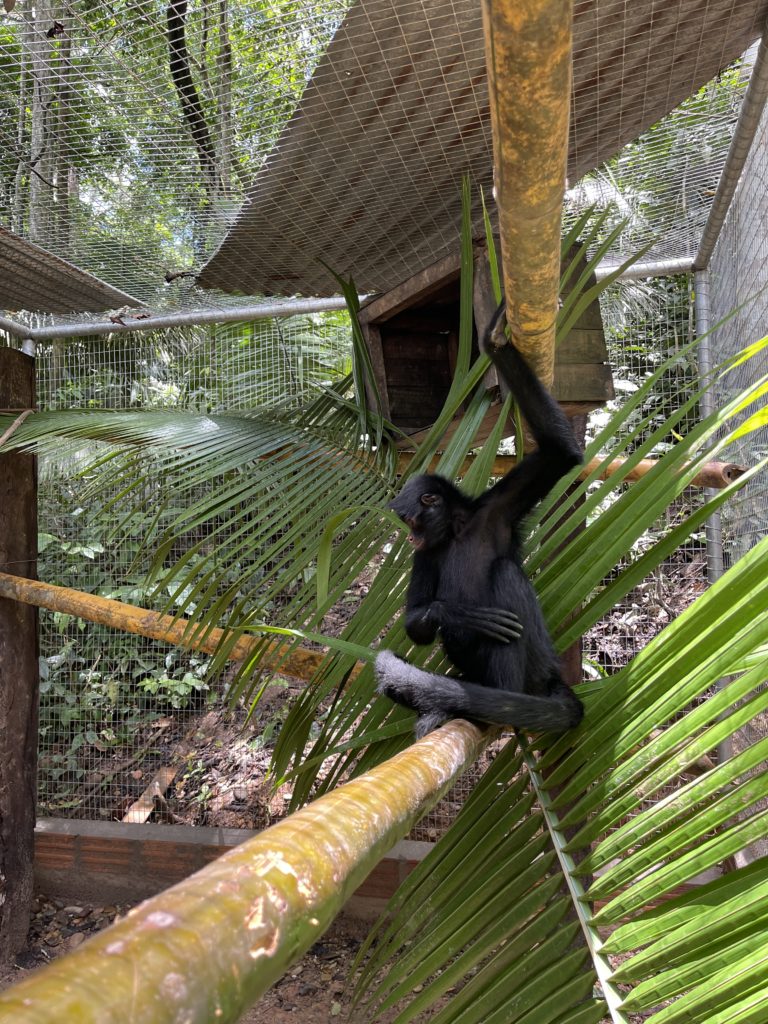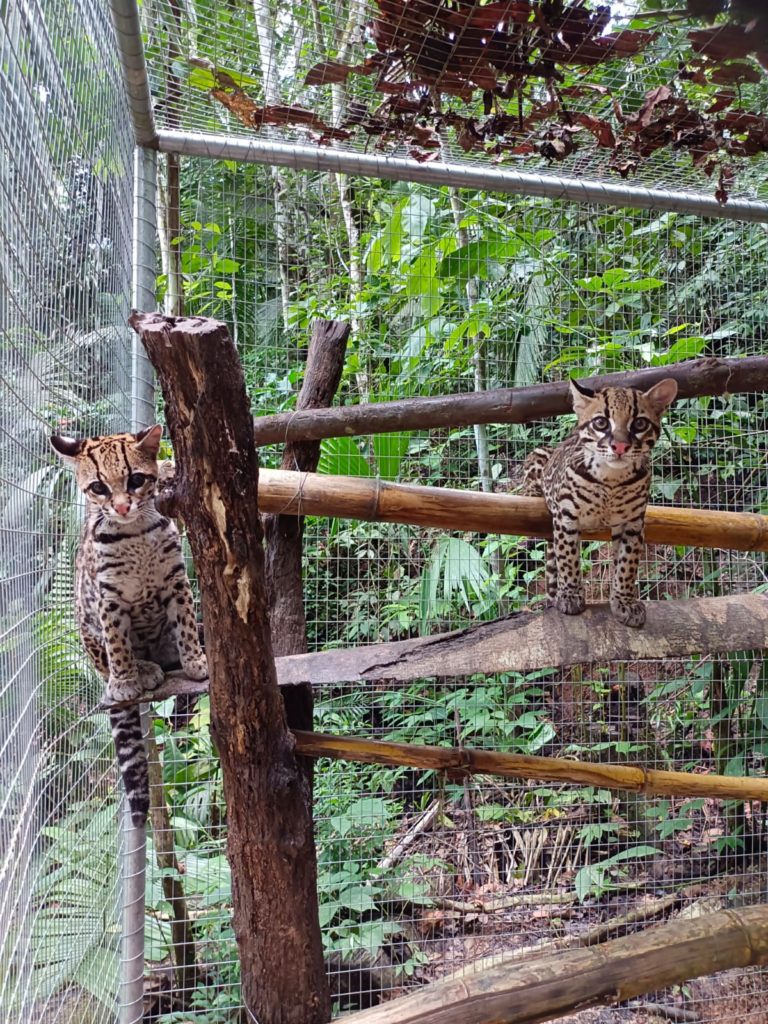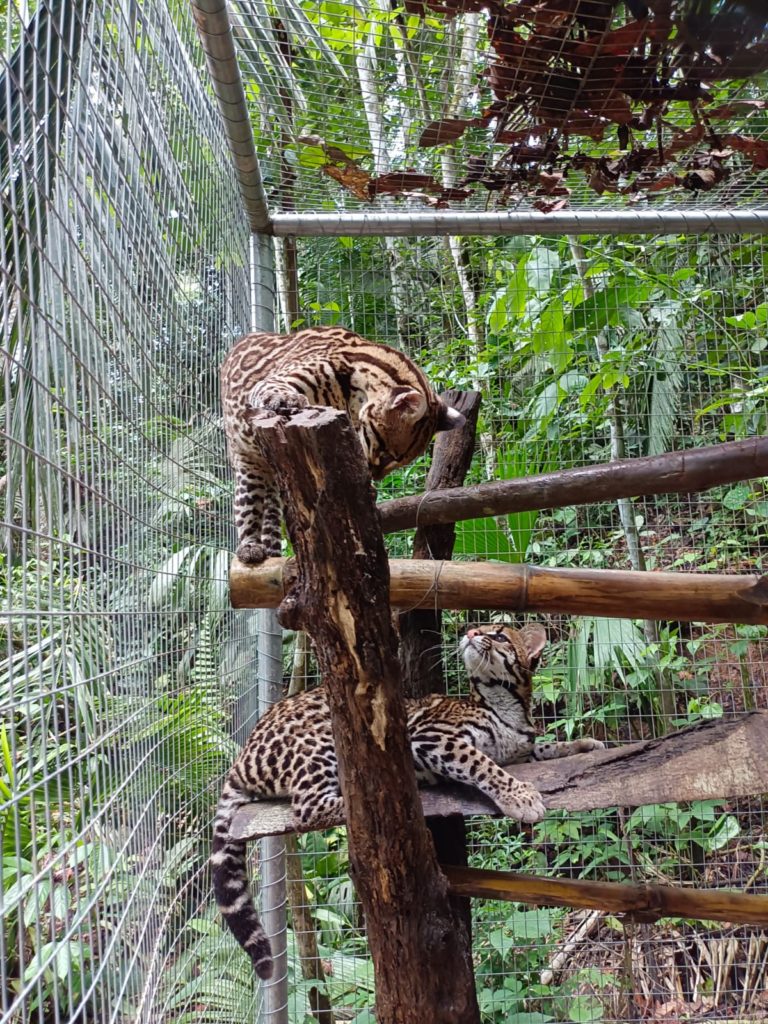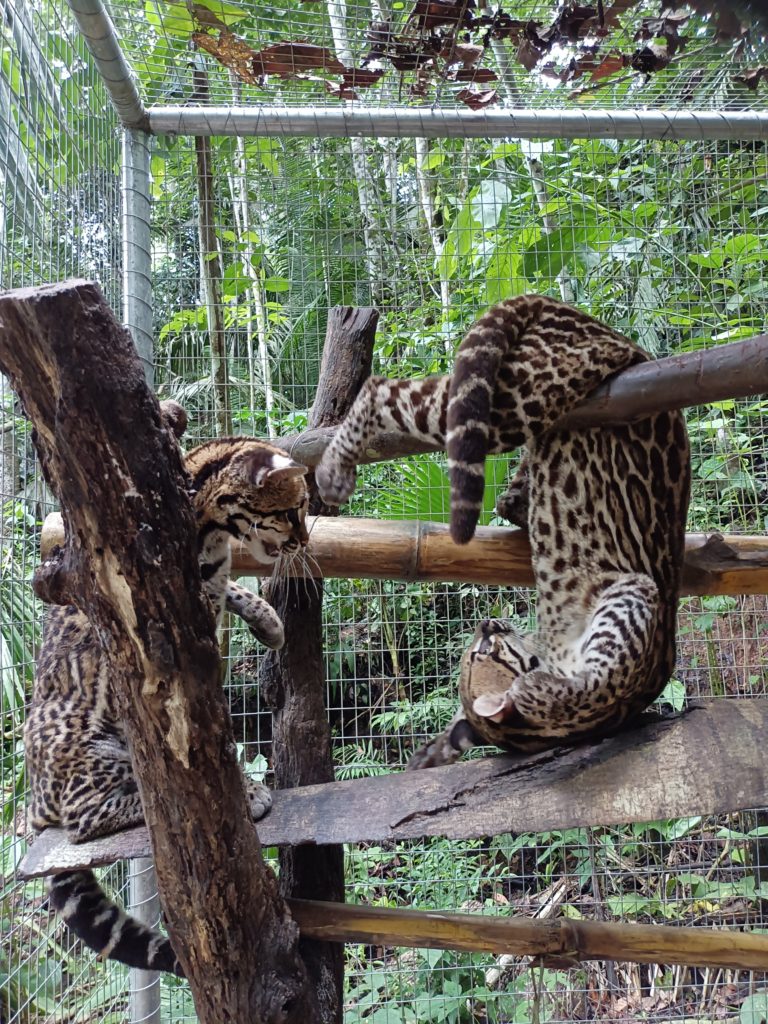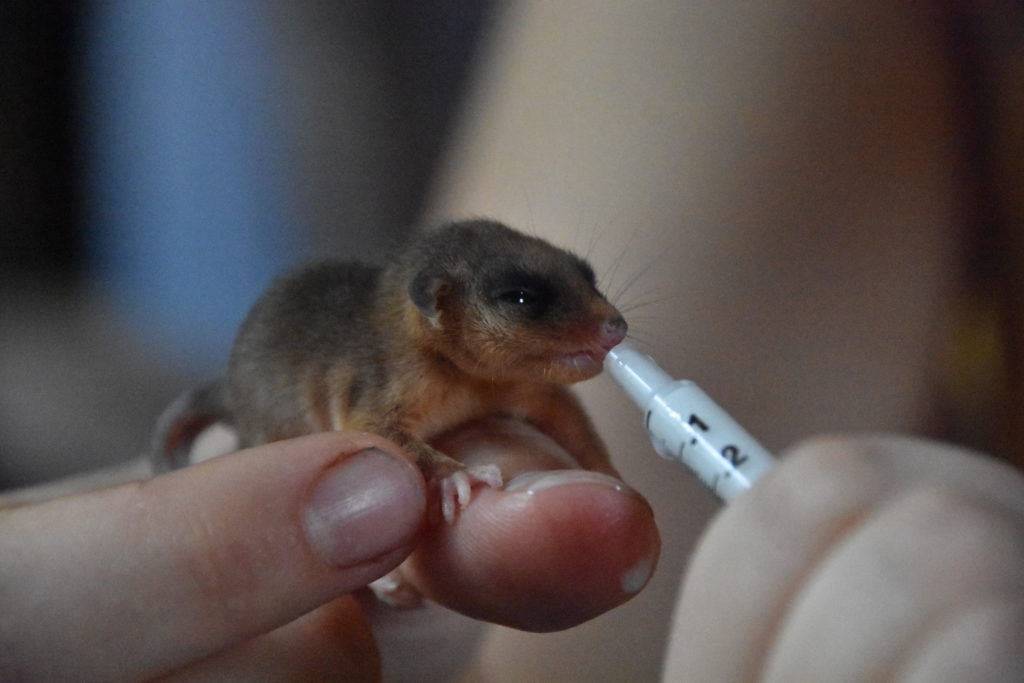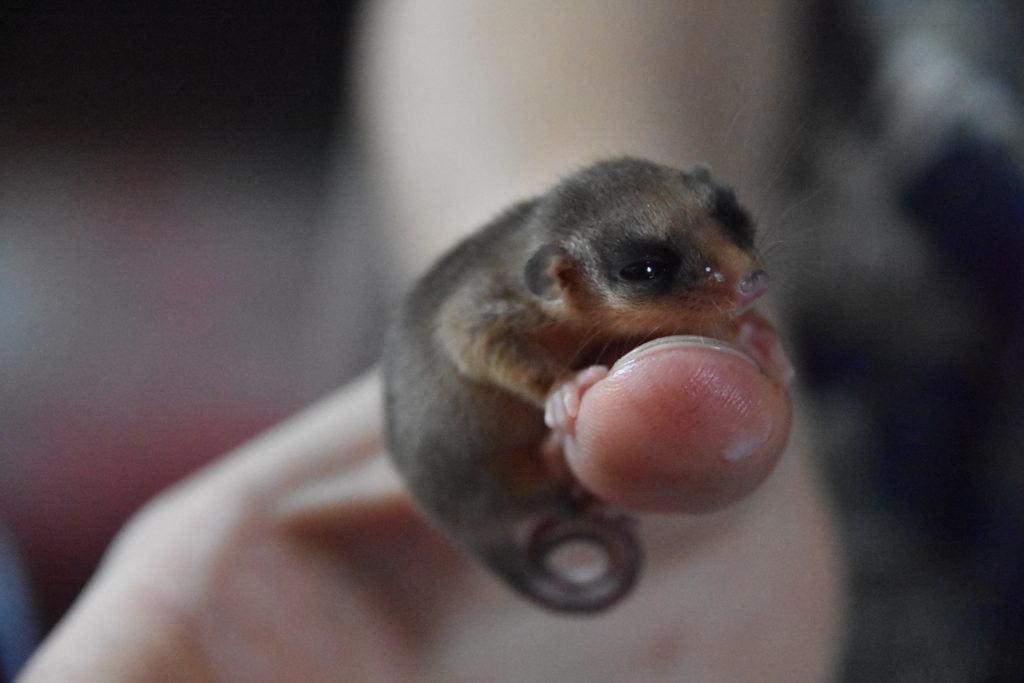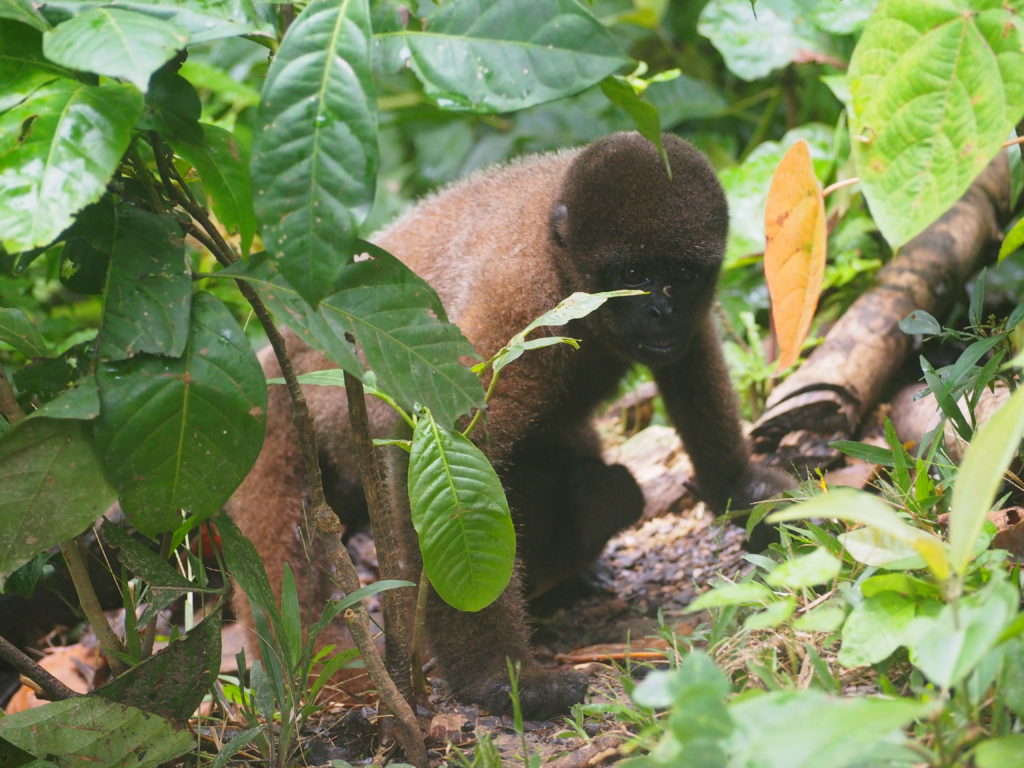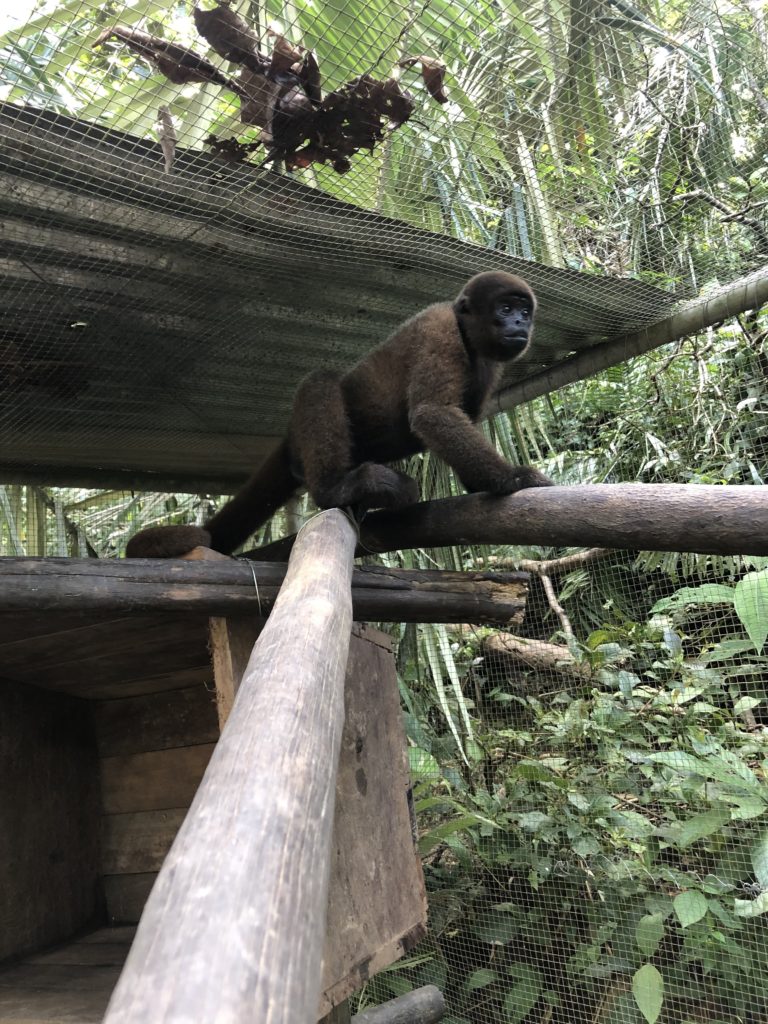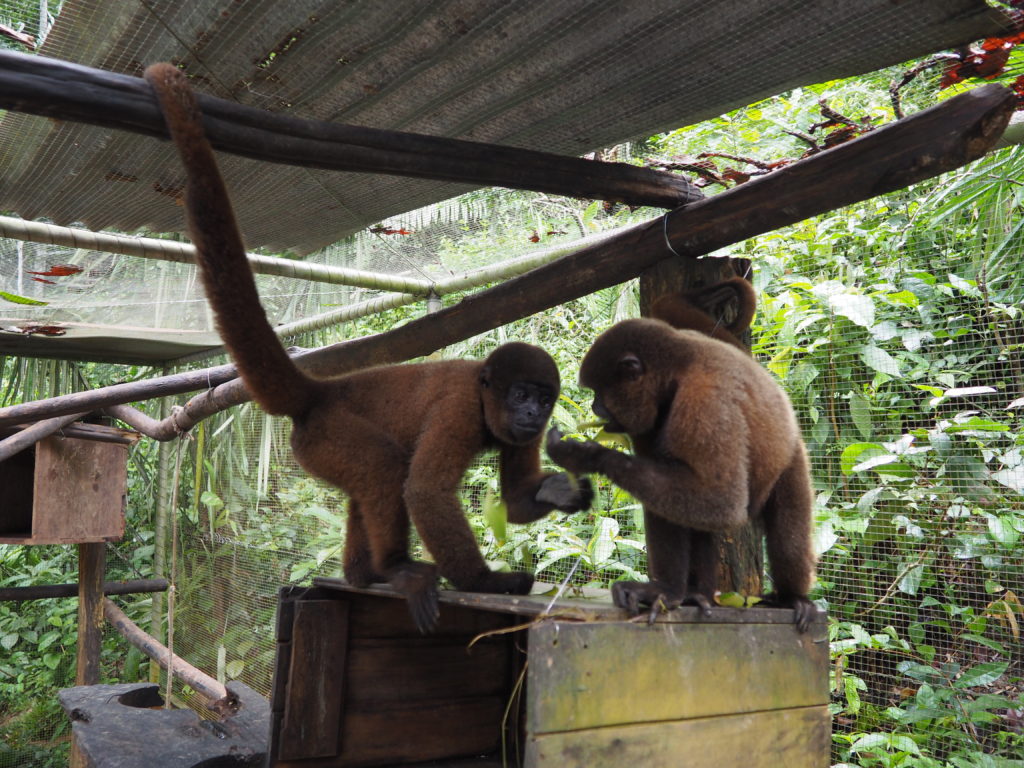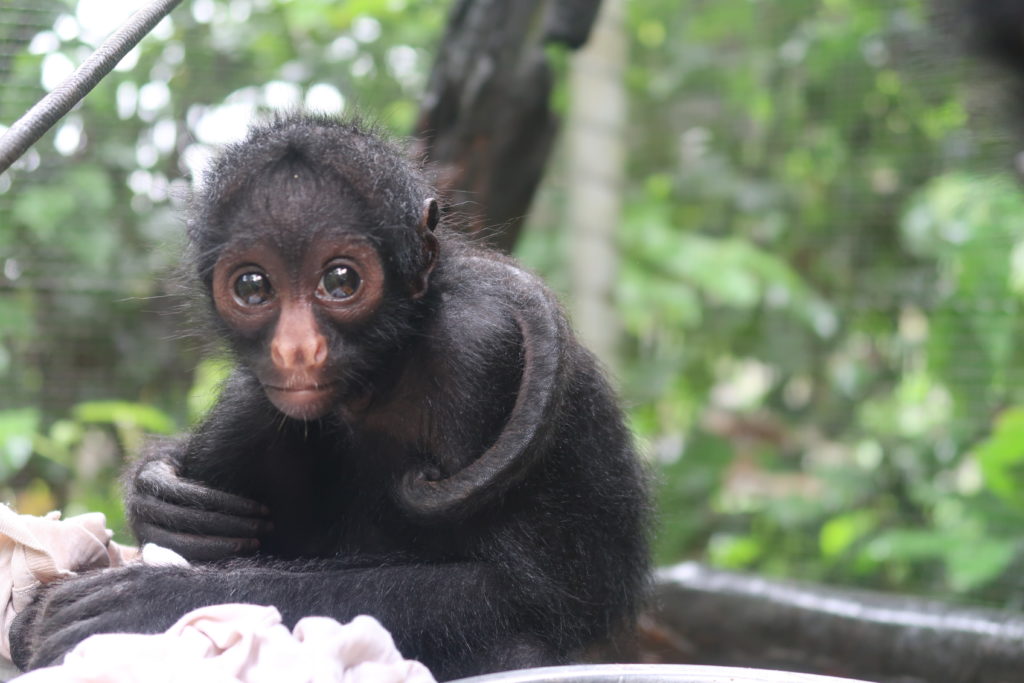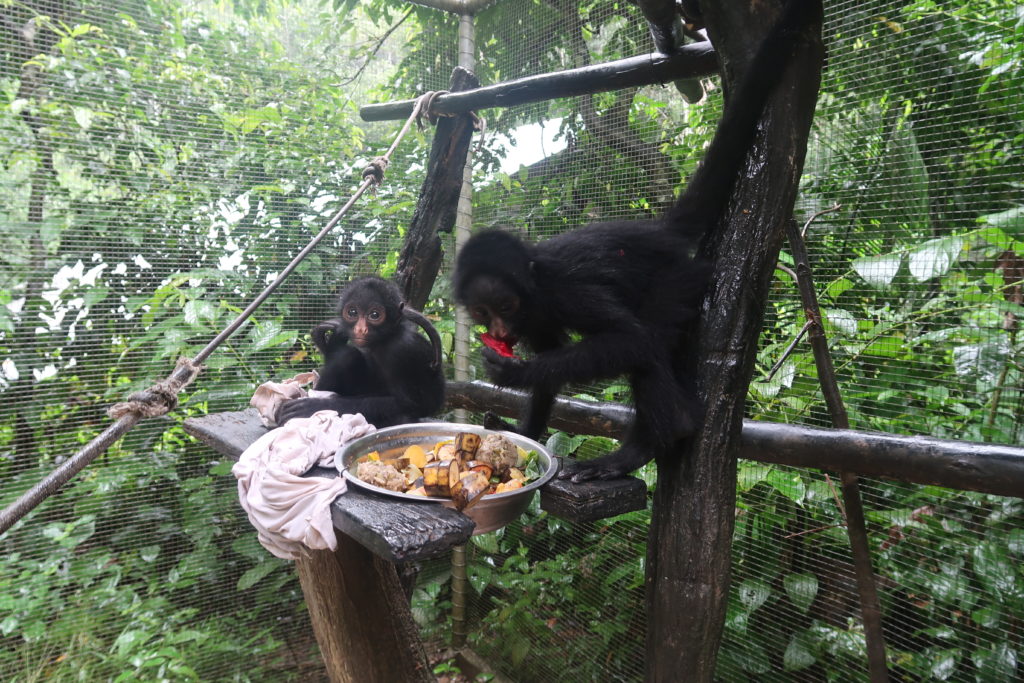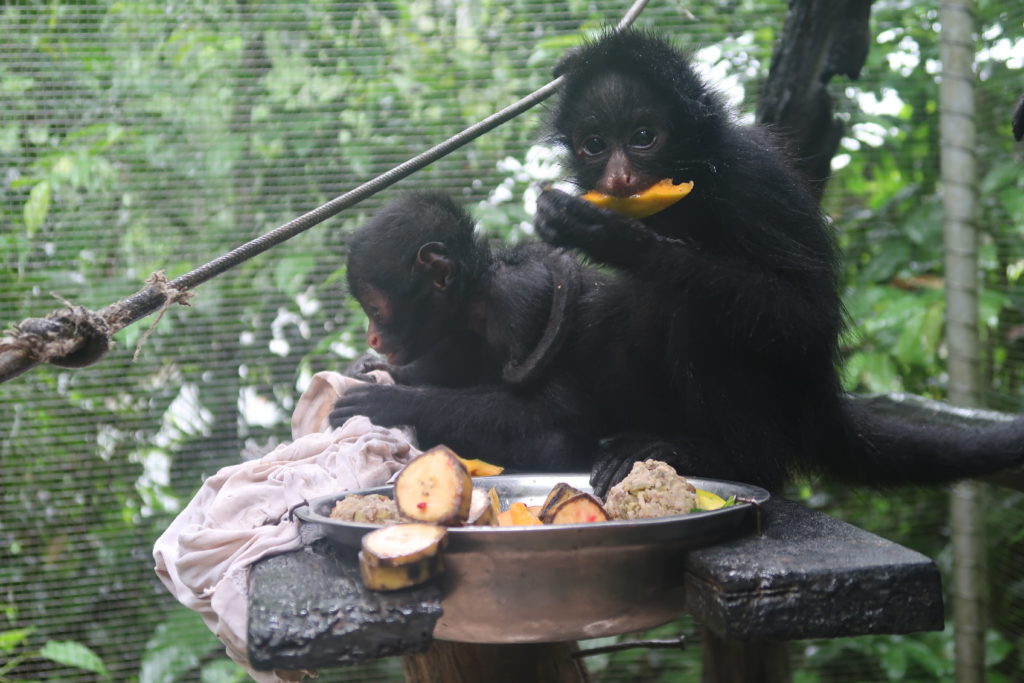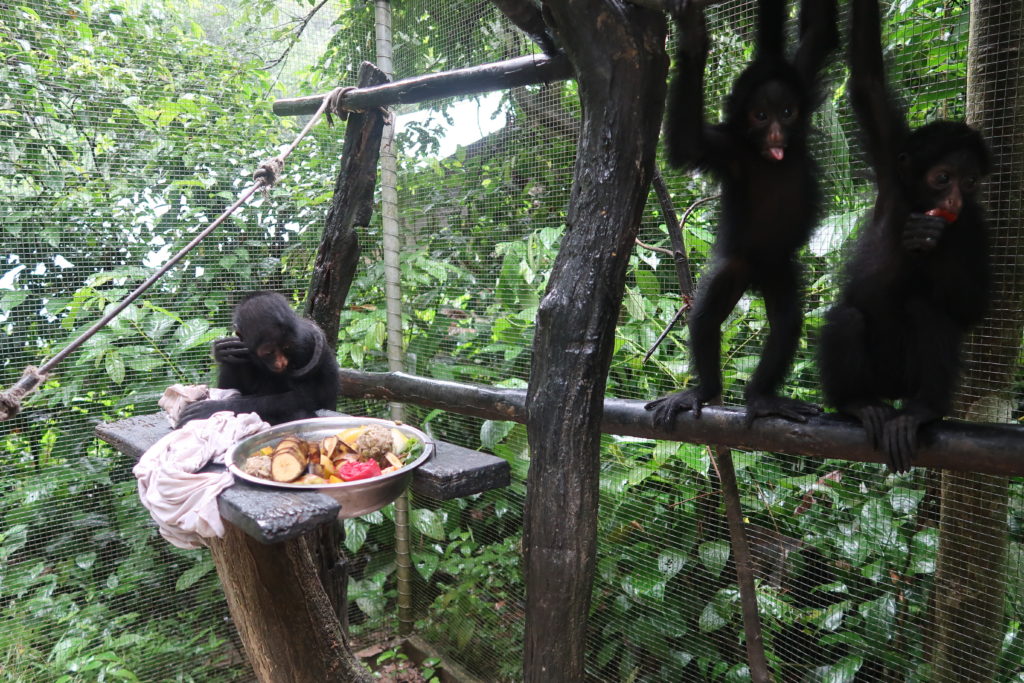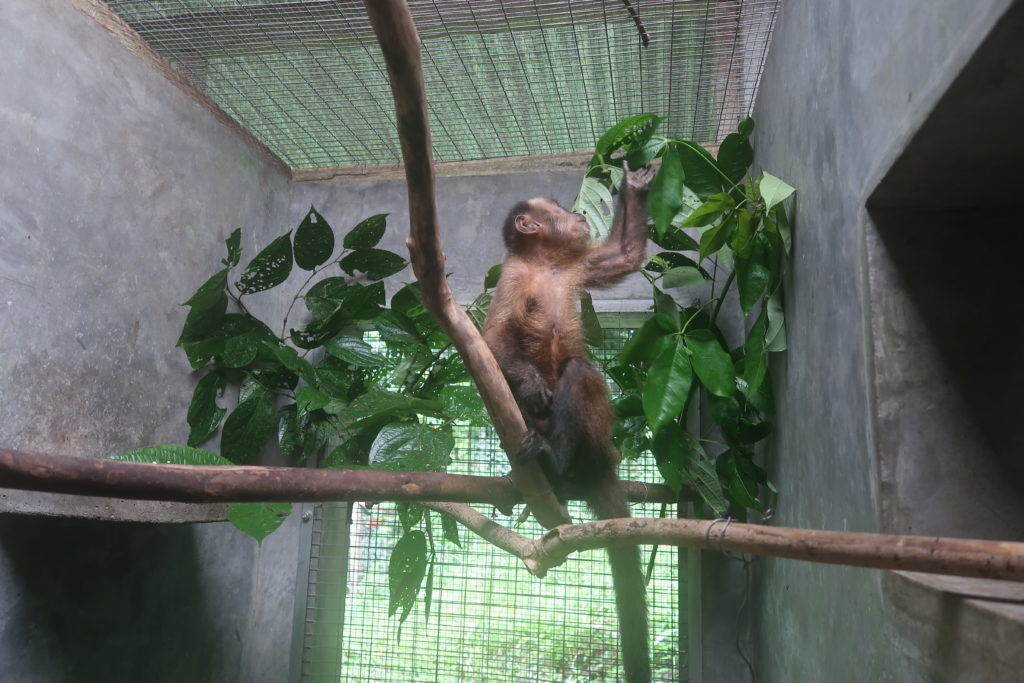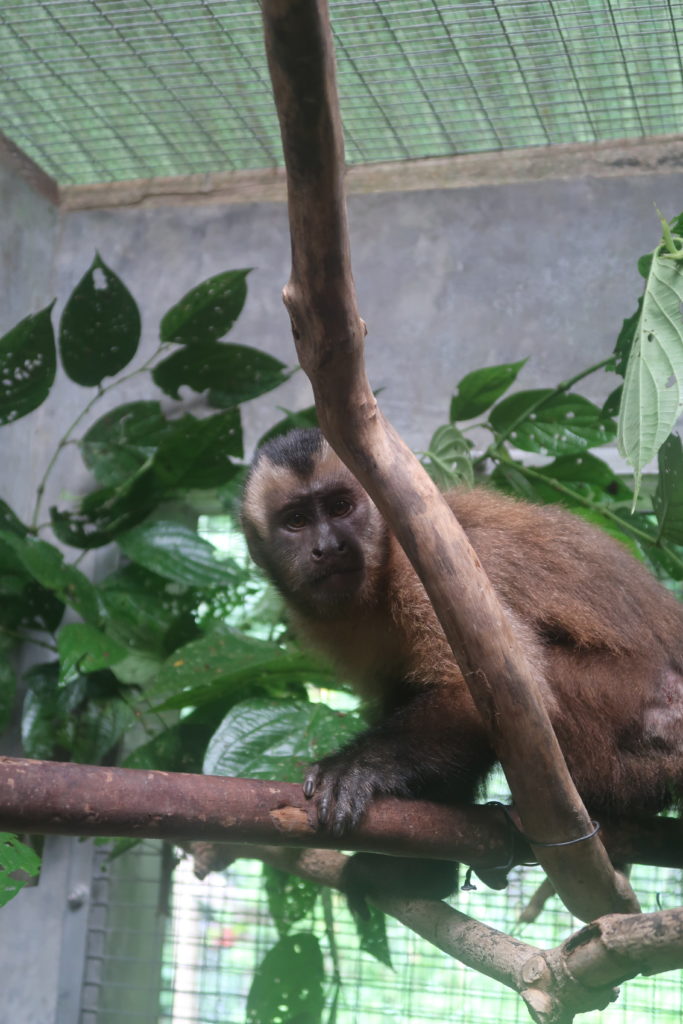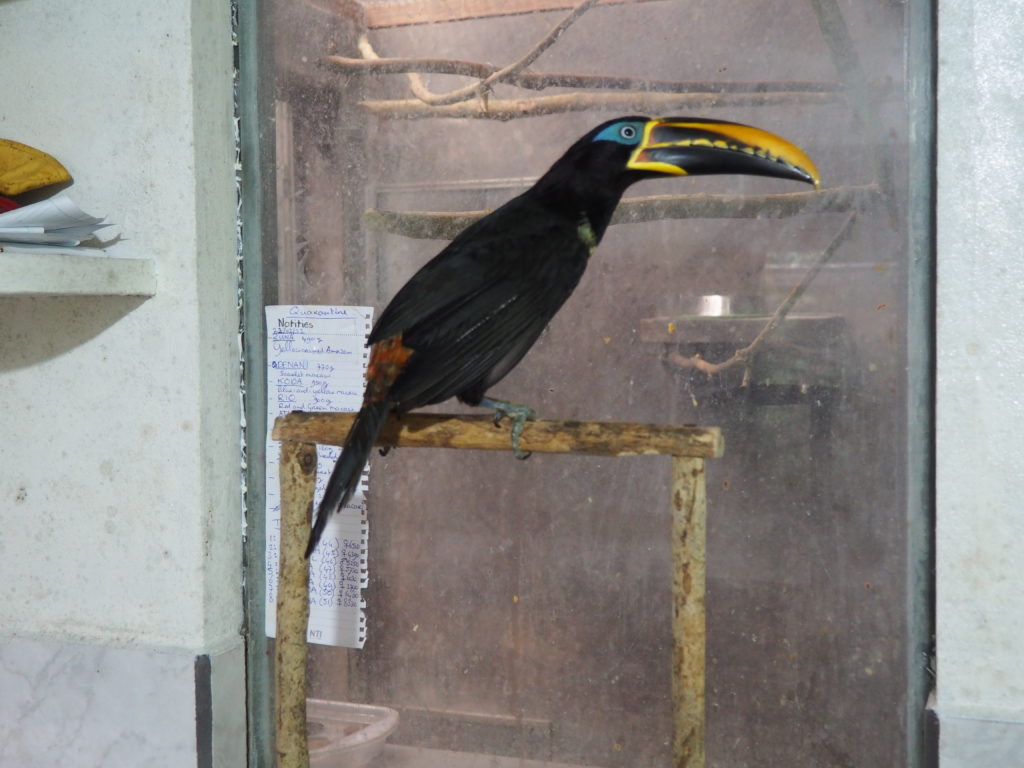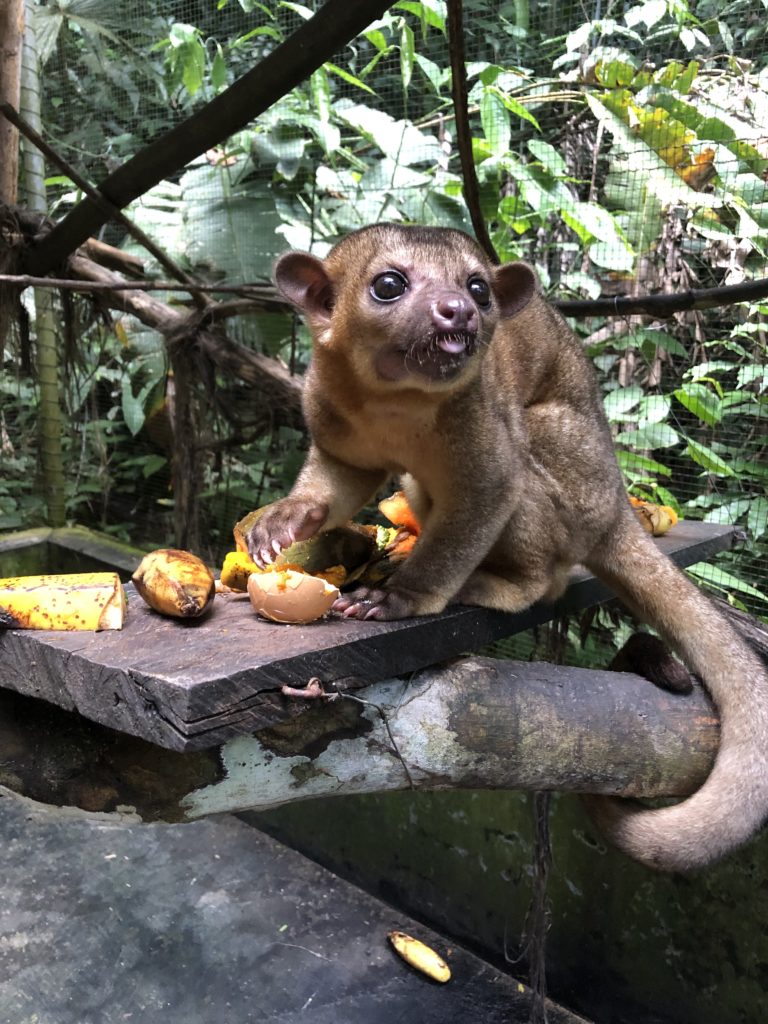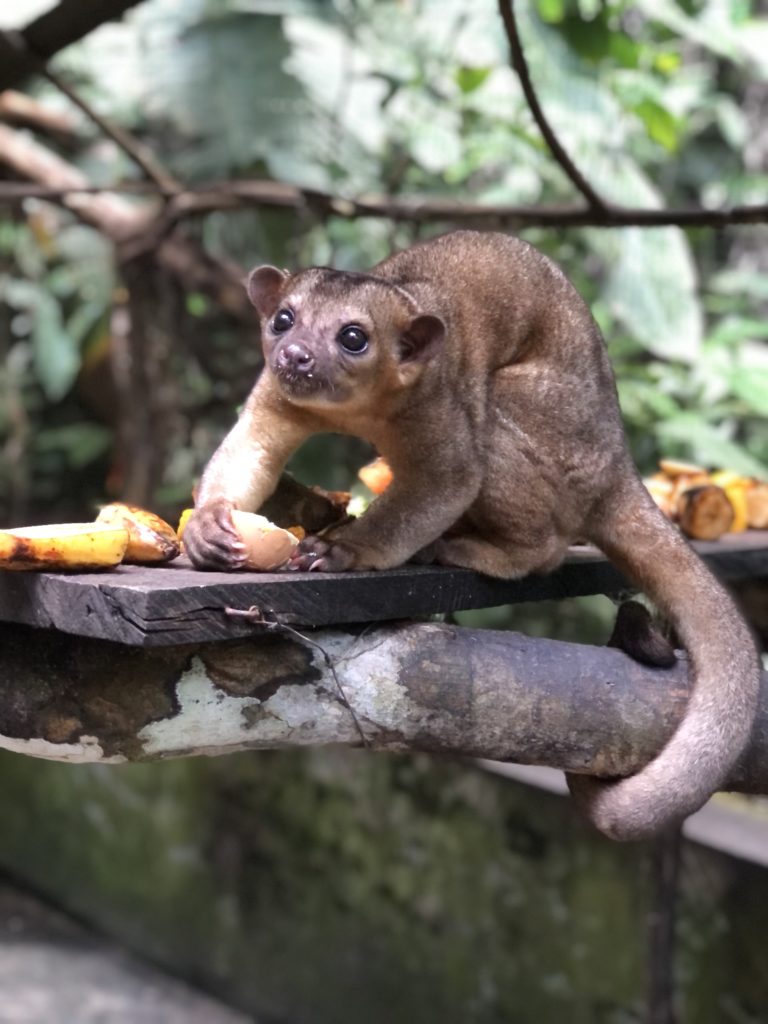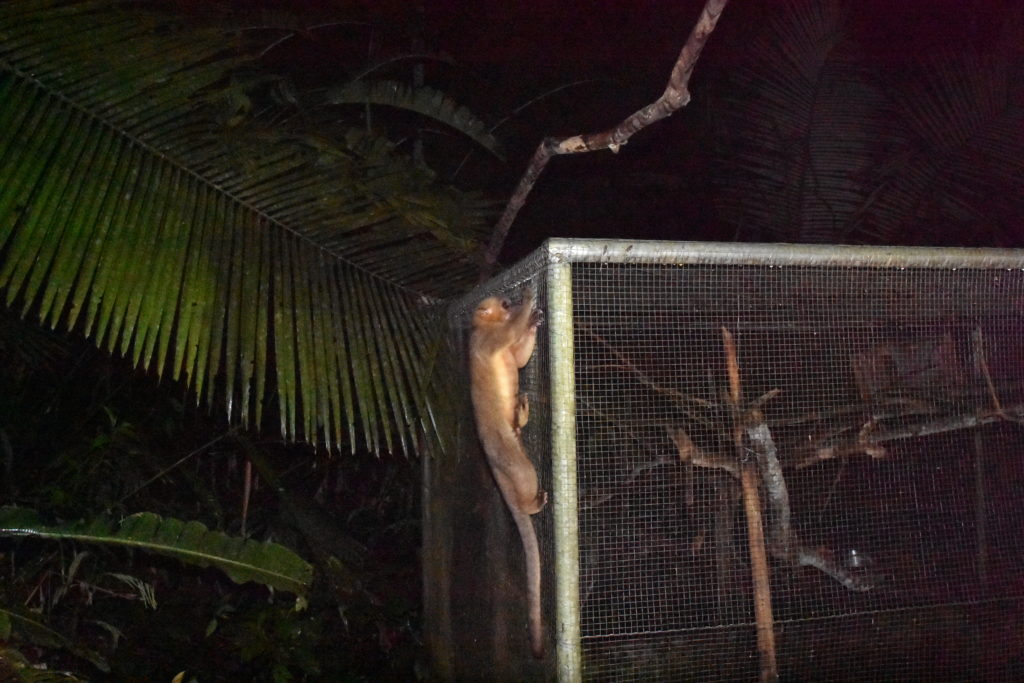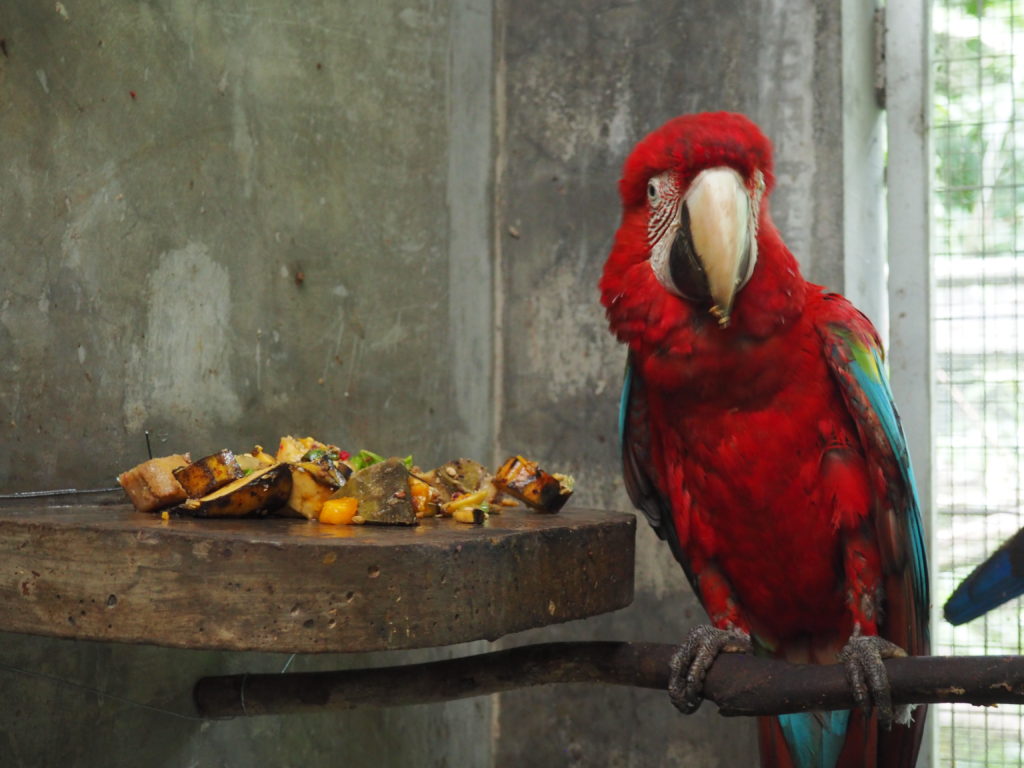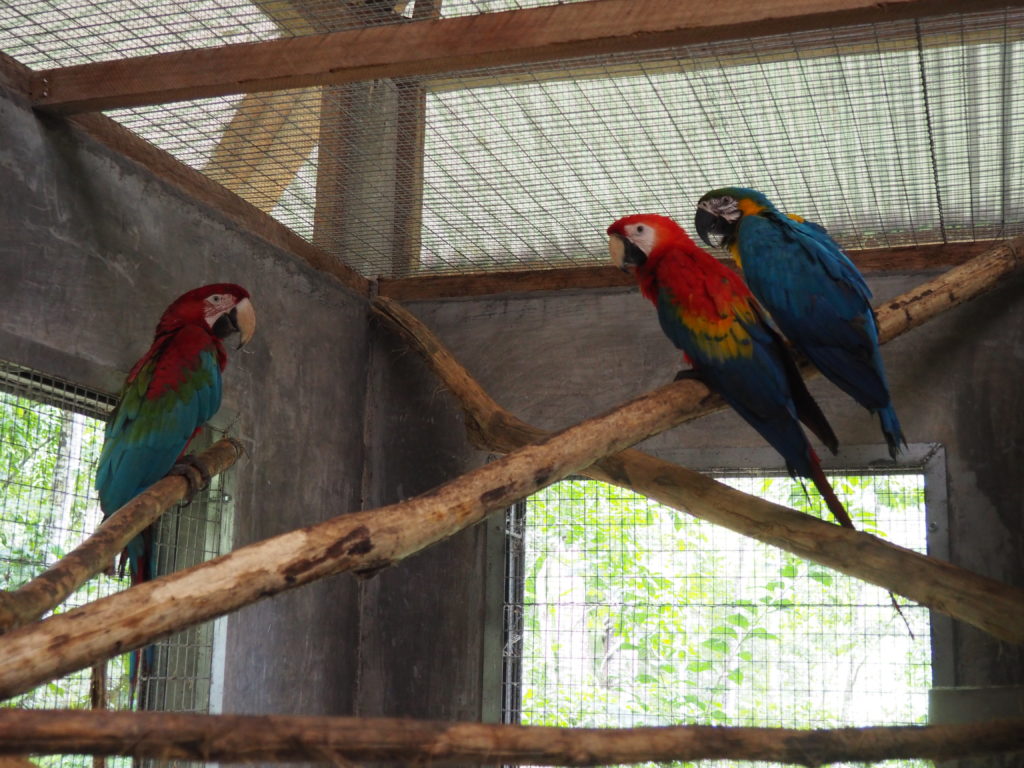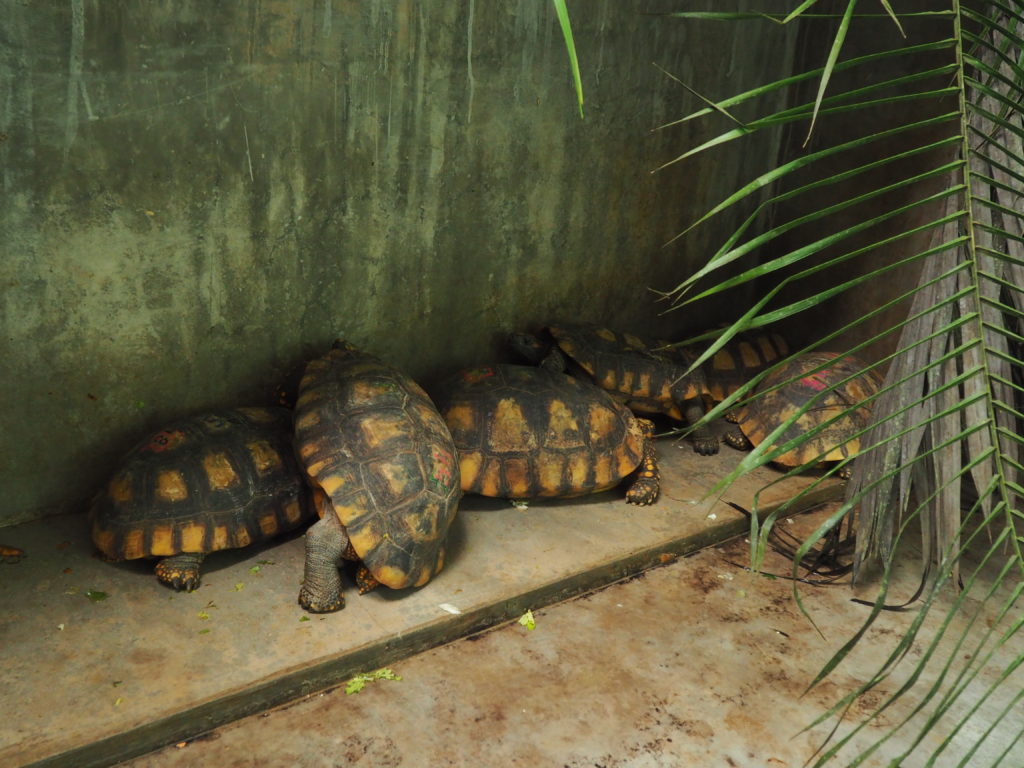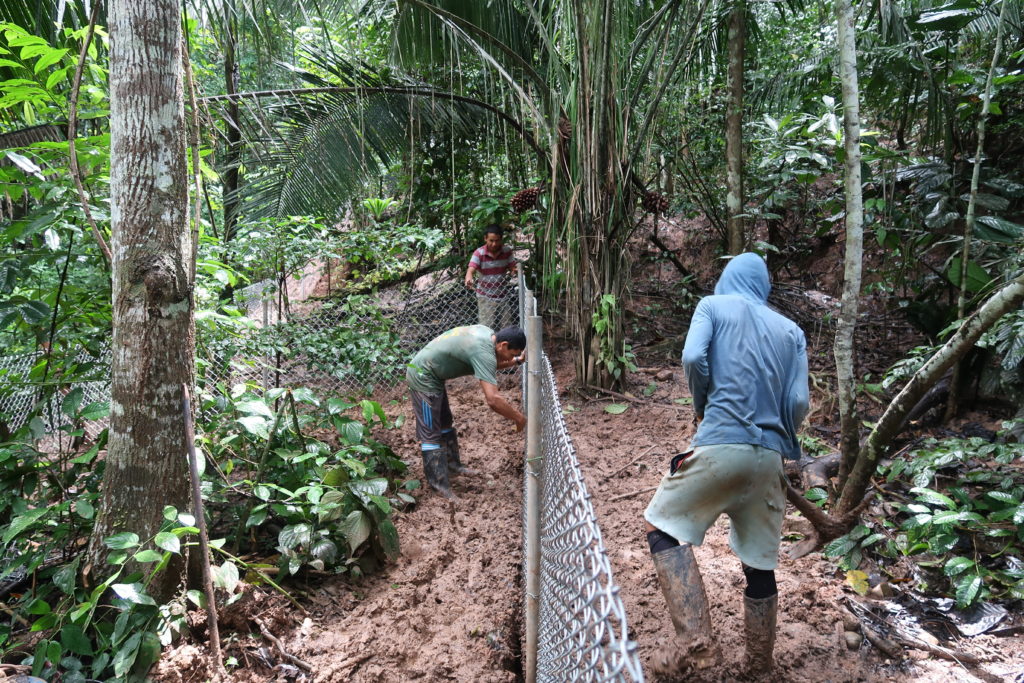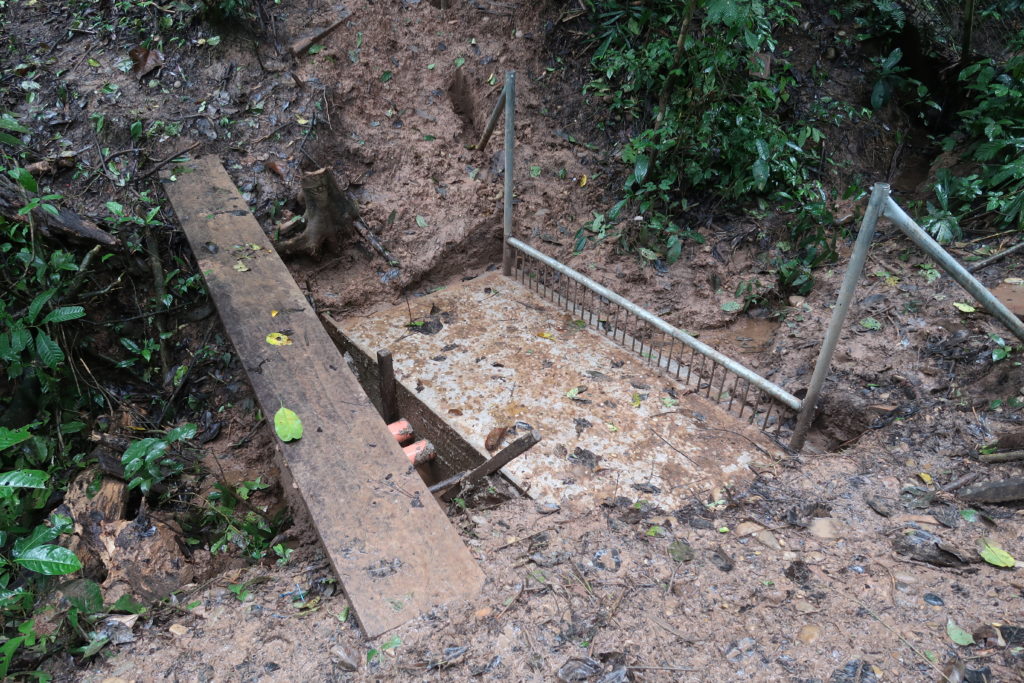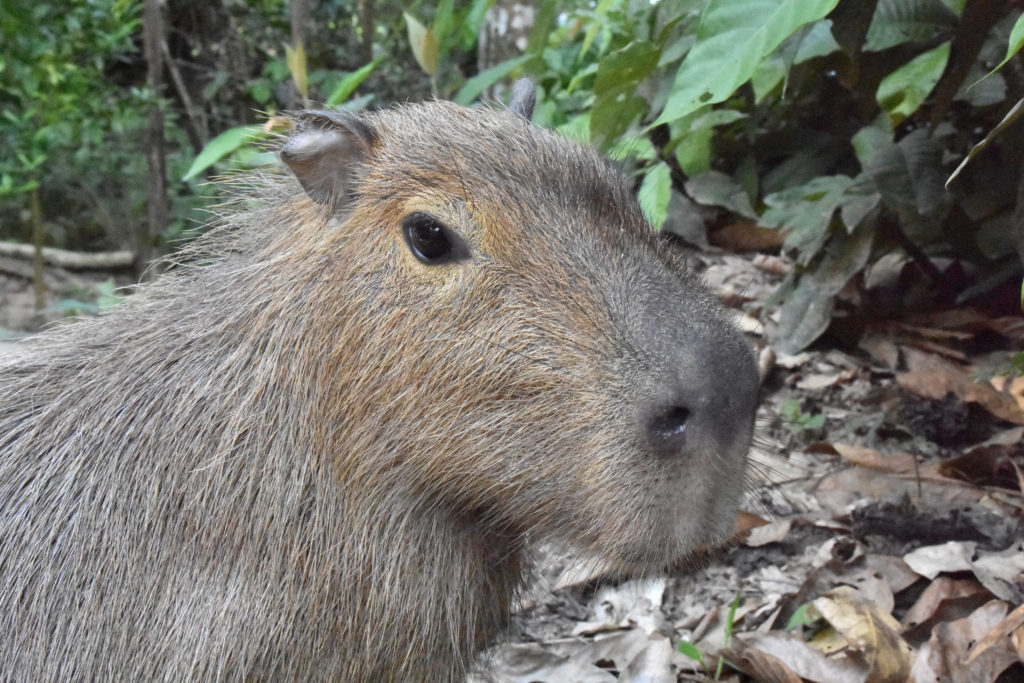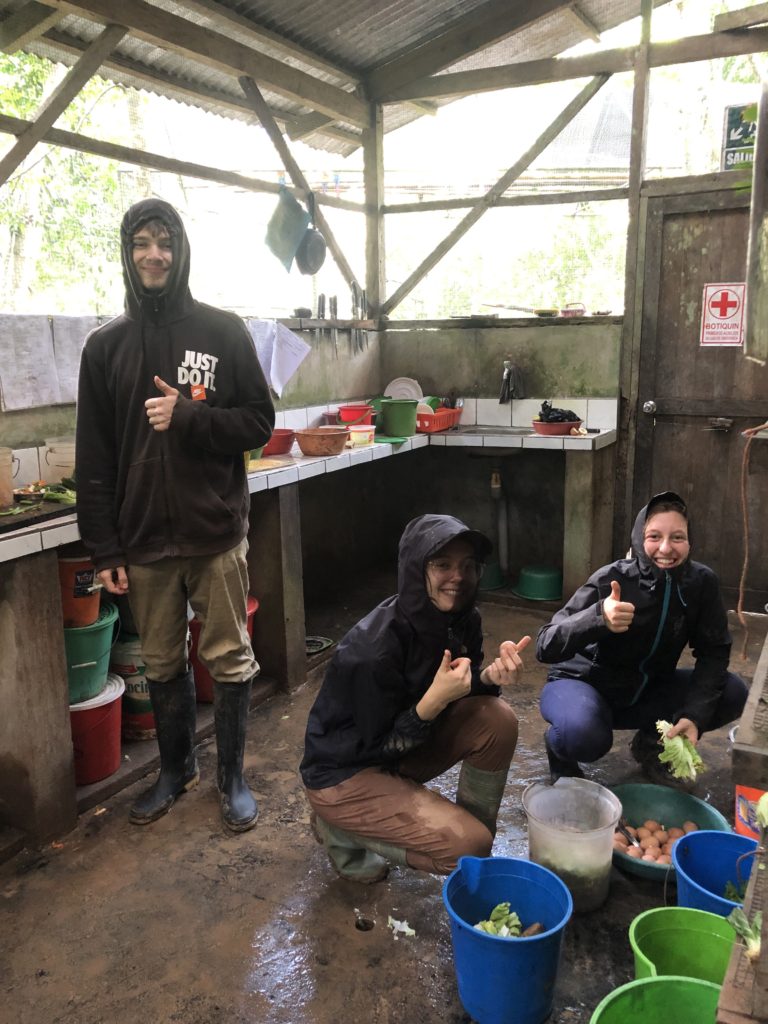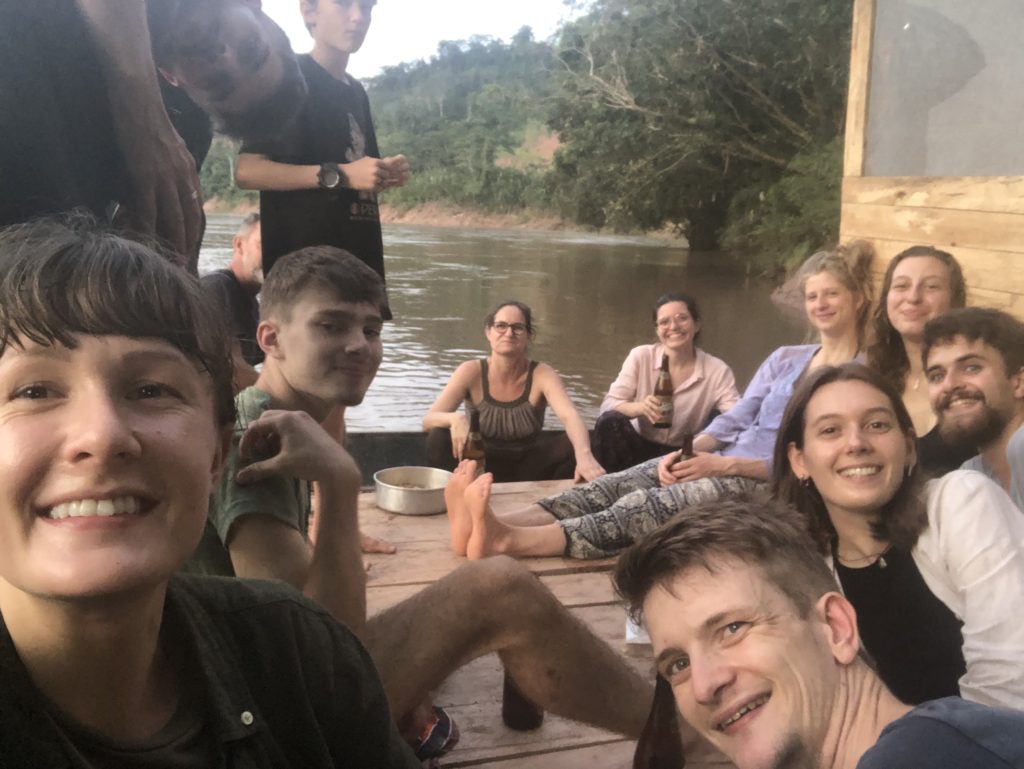After the worldwide upheaval of the previous two years we are grateful that we again have a steady group of ever-changing volunteers working hard to keep the “wheels in motion” with animals getting the care and attention they so deserve.
 Animals
Animals
Payco (adult male crab-eating racoon) was released again this month from the Pepe enclosure. The wound on his back was healing slowly so he has been a resident for a long time. Once it had fully healed, he was ready to take on the outside world once again! He seems to be doing well and is spotted eating on his familiar outside feeding table. He even accompanied volunteers on a night walk with Takido (juvenile male crab-eating raccoon).
Katinka (juvenile female spider monkey) was very happy to be let back out of the new Araña enclosure to rejoin her friends outside. Following her surgery last month, her wound had healed well, and further treatment could be completed outside.
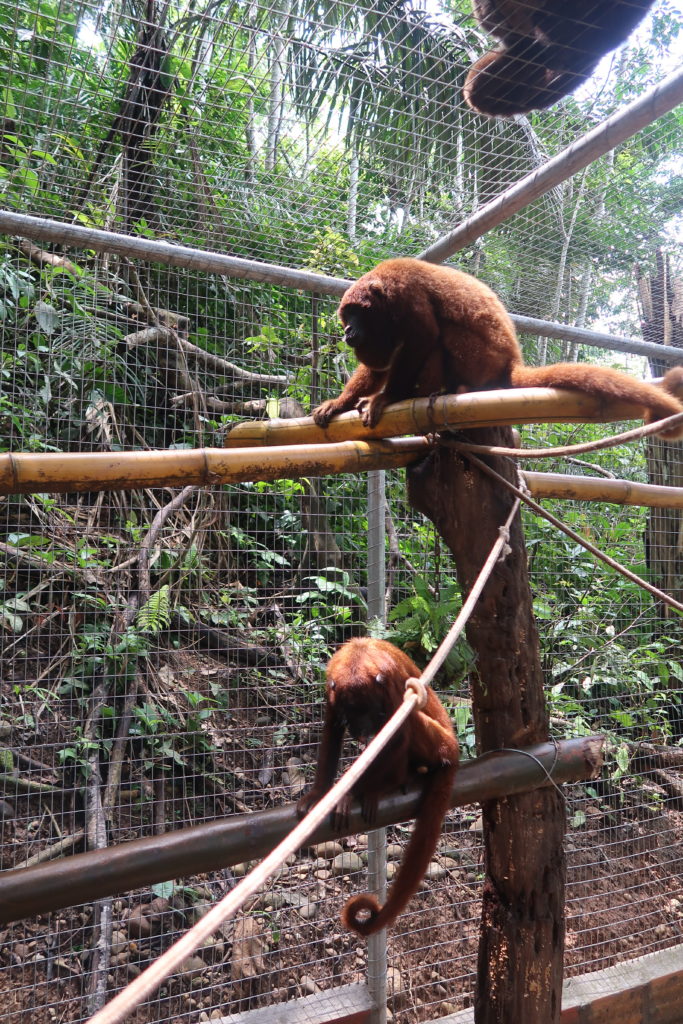
Darwin and Armando, male howler monkeys, in Araña enclosure 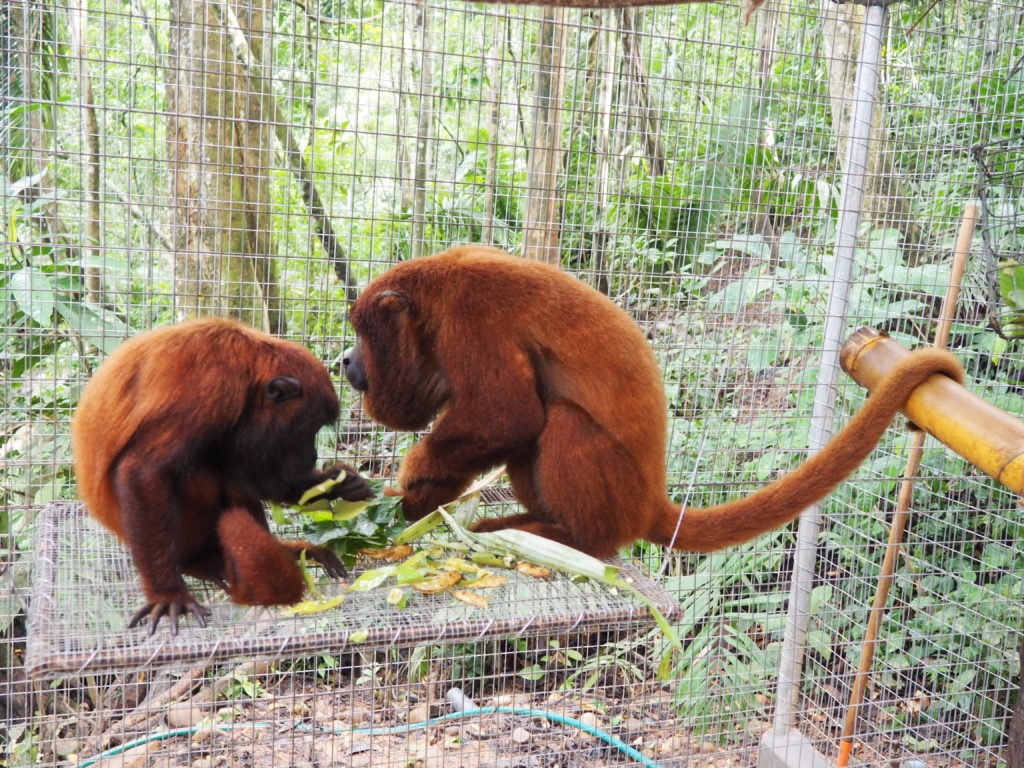
Armando and Darwin, male howler monkeys, at foodtime in Araña enclosure 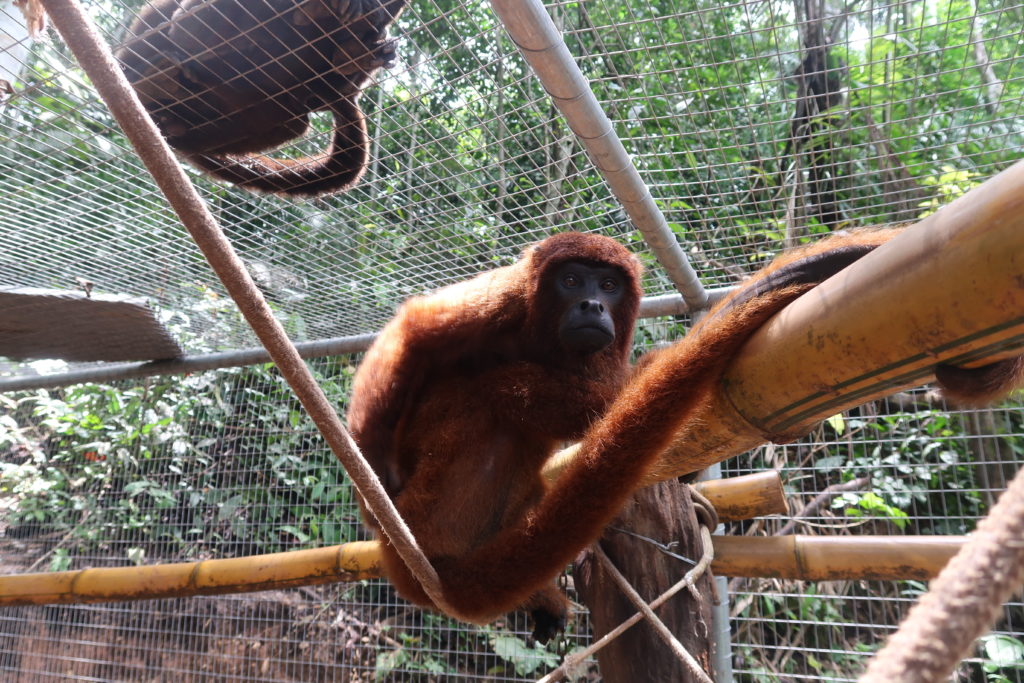
Darwin, adult male howler monkey, in the new Araña enclosure 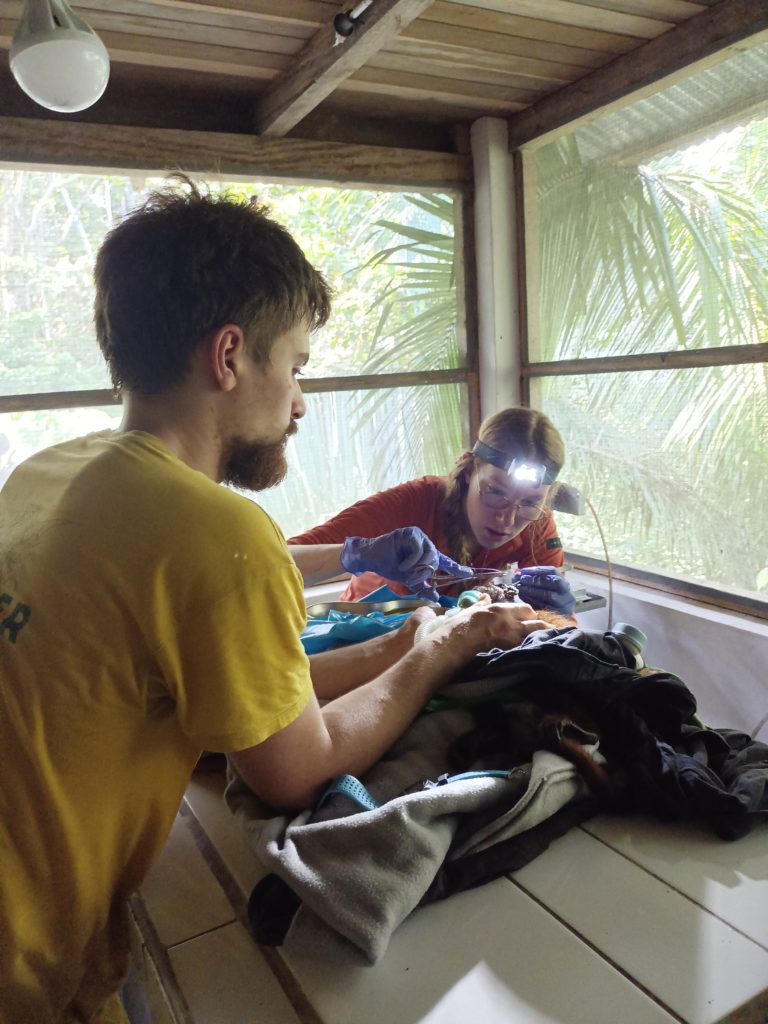
Lisa, visiting veterianarian, performing surgery on howler monkey Watson 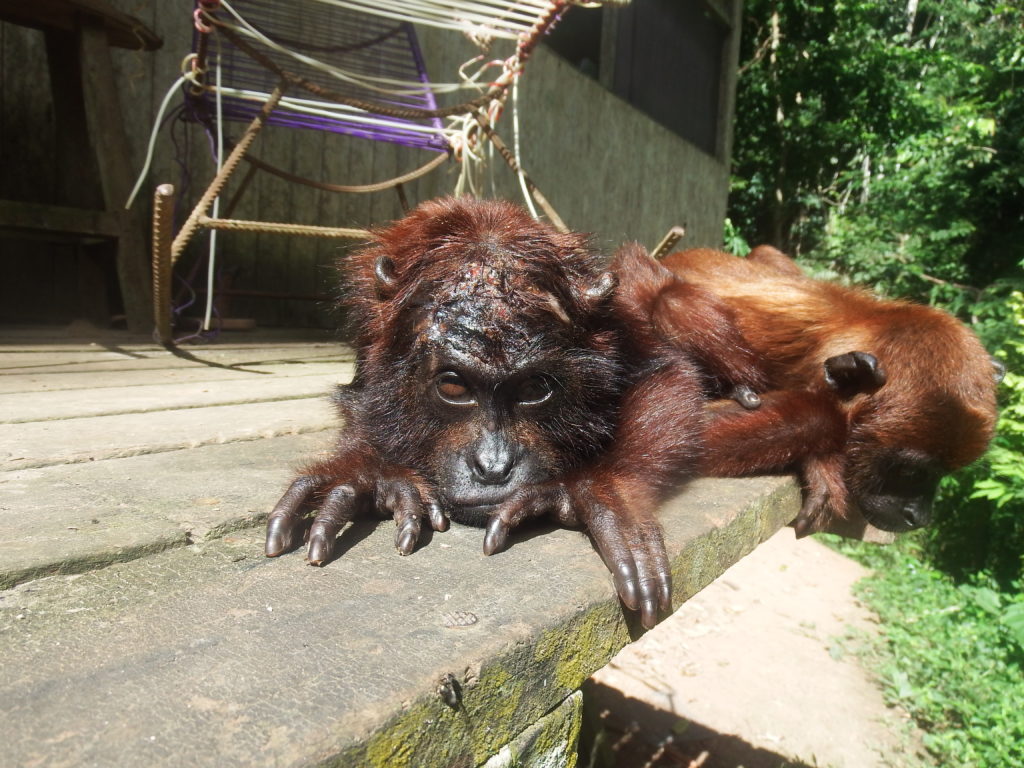
Watson after surgery with Maida at the family house 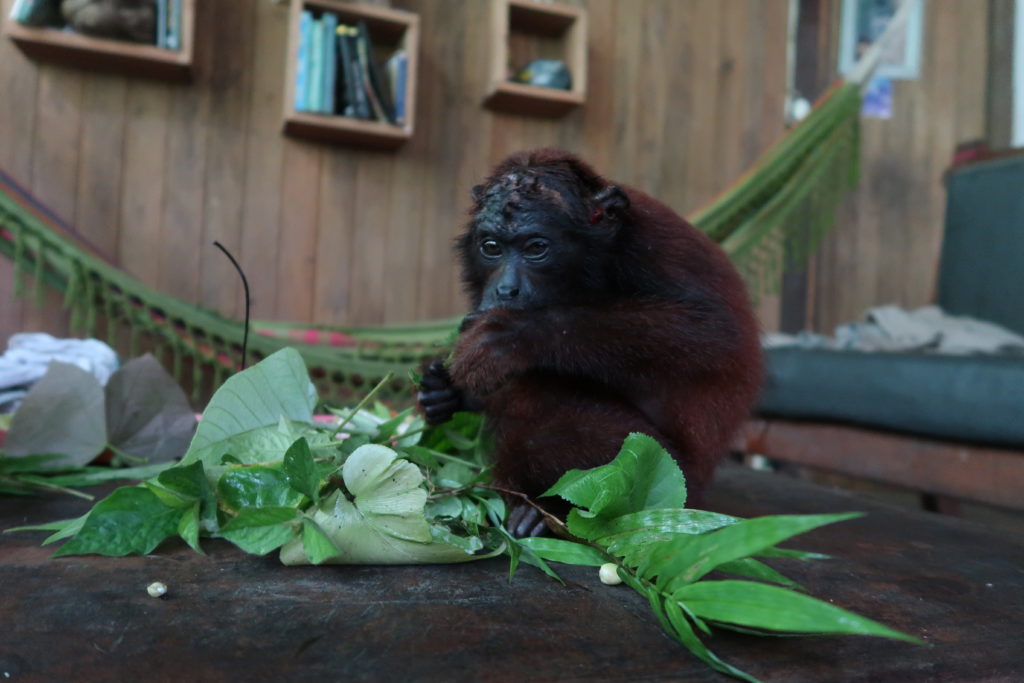
Watson, juvenile male howler monkey, now staying inside after getting bitten by another monkey
Darwin and Armando (male howler monkeys) were moved to the Araña enclosure, to make room for Maida and Watson (the younger, female and male howler monkeys) as they transition from the family house. Darwin and Armando have settled into their new surroundings well and are enjoying the change of scenery. Darwin´s deafening howl can be heard across the site and is a welcome sound to everyone´s ears. Unfortunately, the transition was delayed as Watson landed himself in some trouble this month. While exploring in the trees, just outside of the family house with Maida, he was involved in an altercation with Samara, one of the adult female woolly monkeys. He sustained bites to the head and serious damage to his left ear, but thankfully Lisa, a visiting veterinarian and previous volunteer was on hand and able to stitch him up. His wounds are healing well, and after a week of intensive care he is now making, together with Maida daily visits to Lulu enclosure with the intention of moving there before being released to enjoy the freedom and security available to them at Esperanza Verde.
We also took the next step in introducing Wayra and Gaia (juvenile female ocelots) to each other. The pair were originally in Parda enclosure (with two compartments), which allows us to keep them separated but this month the exciting moment came where we could open the hatch segregating the two and they got to meet face-to-face. Introductions are going well, with Wayra taking the more dominant role but appears to be quite tolerant of Gaia. The pair have had some small fights but are now starting to relax into each other’s company.
There were some unexpected guests at the volunteer house this month. Volunteers were surprised to discover some mouse opossum babies in the attic of the house and after it became clear that their mother was not going to return, the decision was made to move the babies into a self-made incubator. Unfortunately so small not all made it but after a bit of a rough start Rasta (male) starting at a weight of 6.6g, is steadily gaining weight and greedily drinking milk via syringe under intensive care by our dedicated volunteers.
 SUST Animal Orphan Hospital
SUST Animal Orphan Hospital
Panchin (juvenile male woolly monkey) had a short stay in the clinic during March. After sustaining a fracture to his leg last year, he seemed to have made a full recovery, until a volunteer spotted him limping outside. The cause of the limping is currently unclear but suspected to be unrelated to the original injury. He was moved to Lulu enclosure, together with Keska (juvenile female woolly monkey) where he made a full recovery.
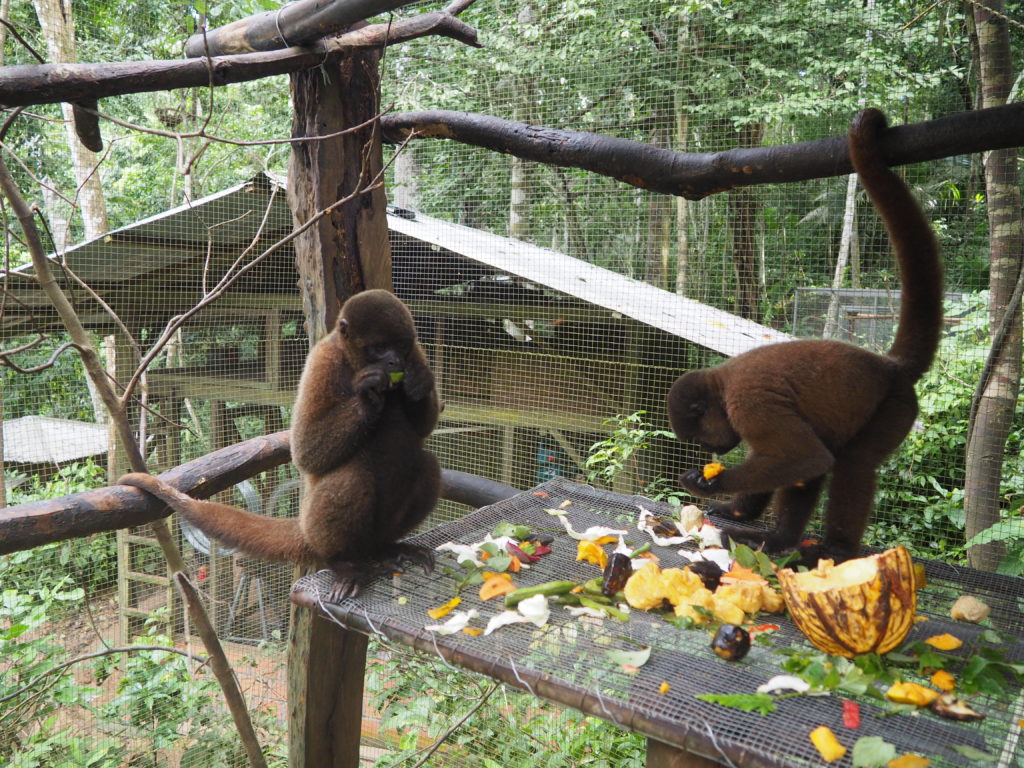
Keska and Panchin in Lulu enclosure 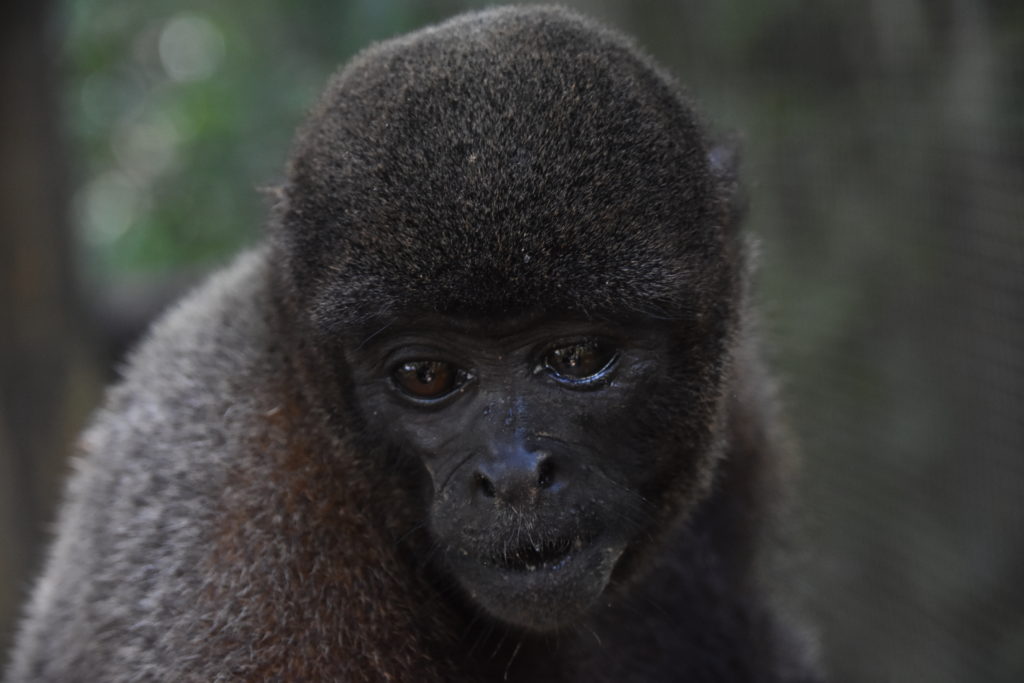
Keska, juvenile female woolly monkey, who suffered head injuries from a fall 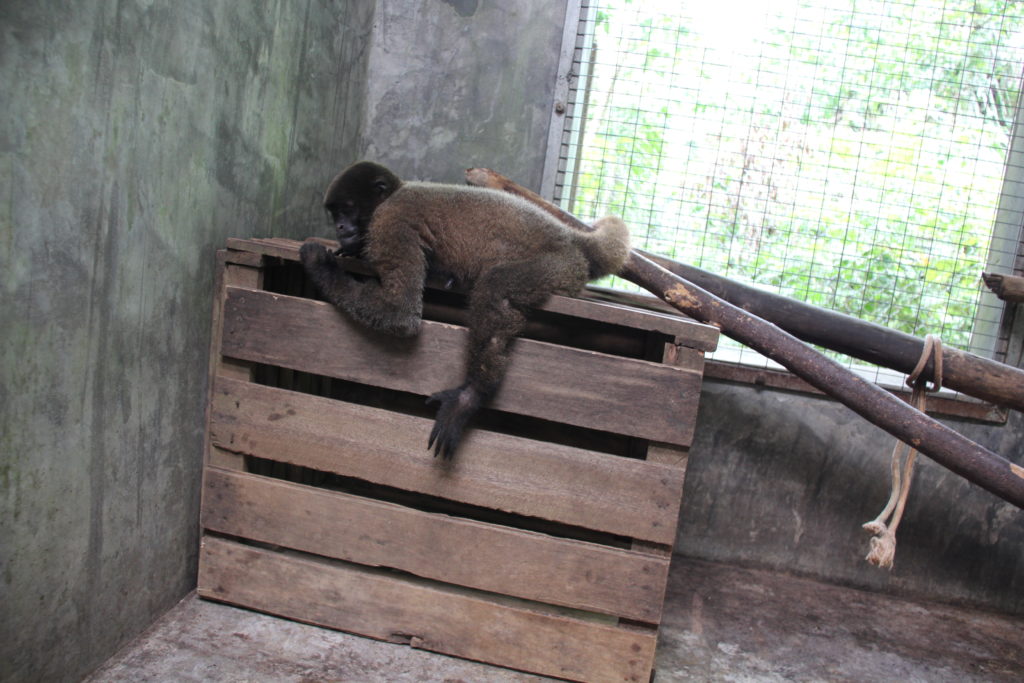
Keska revalidating at the Clinic 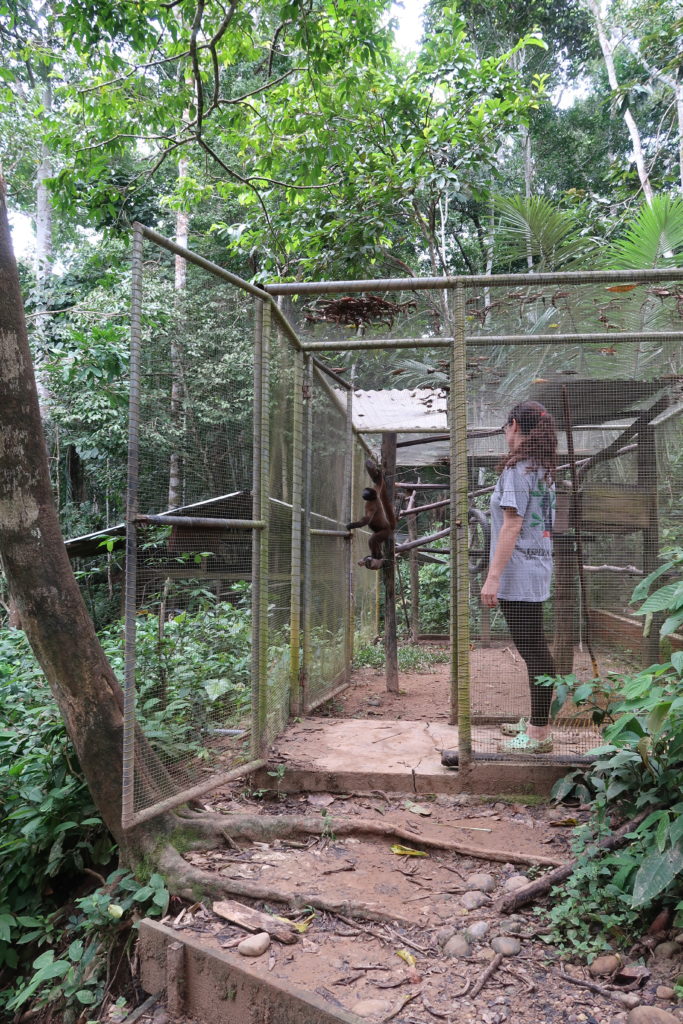
Keska being released from of Lulu enclosure 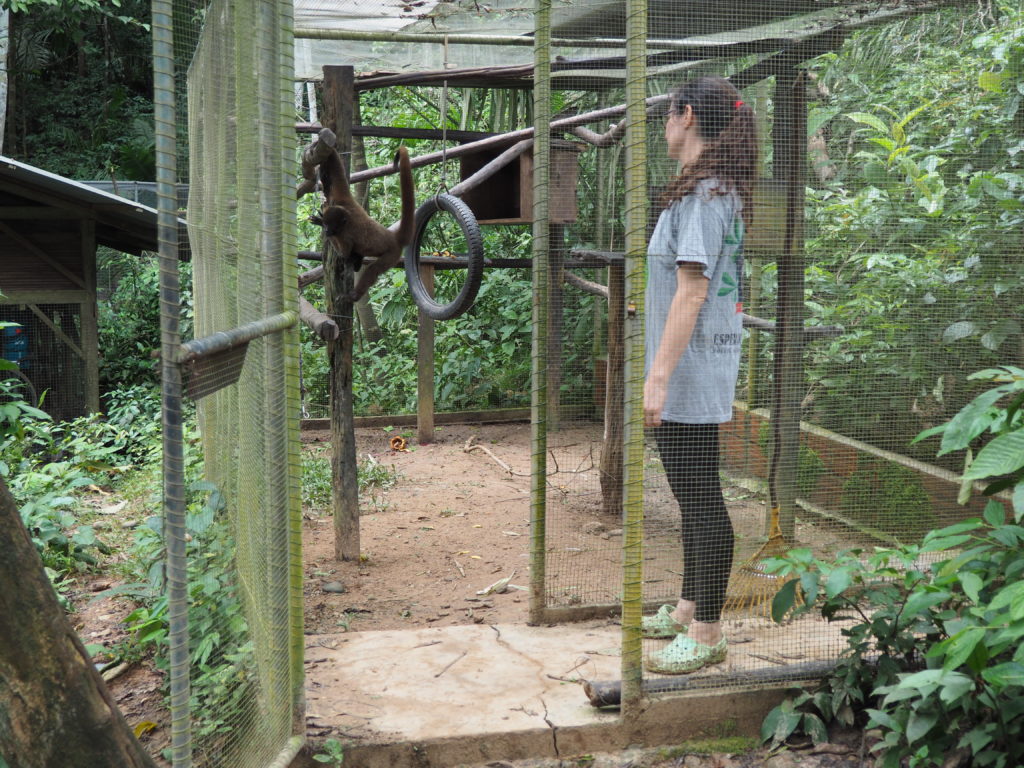
Keska ready to go out again! 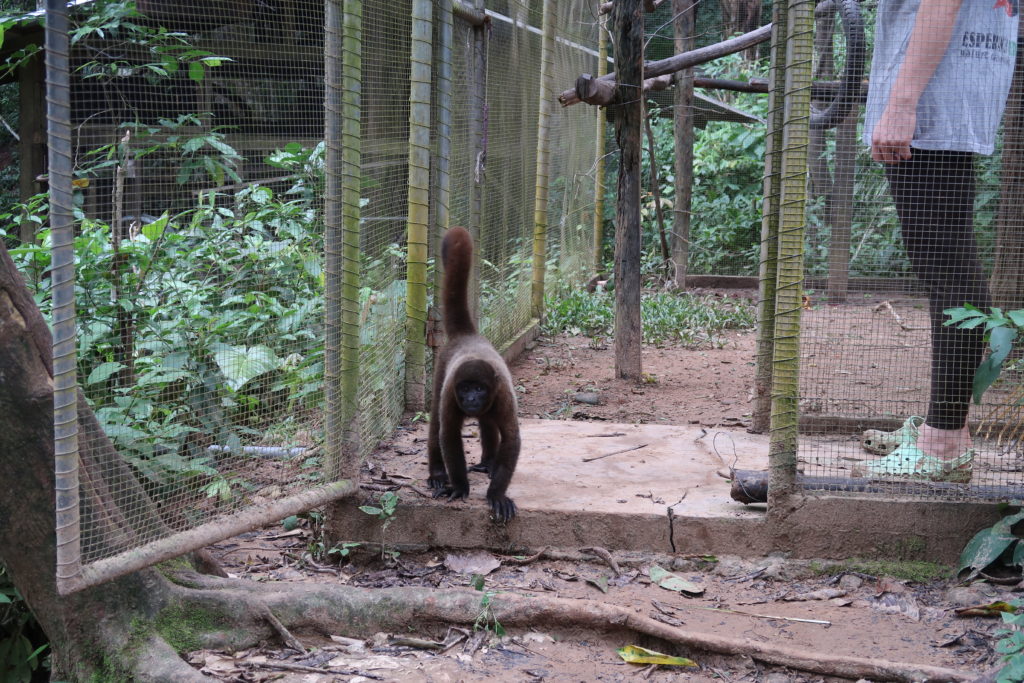
Keska, juvenile female woolly monkey, released from of Lulu enclosure 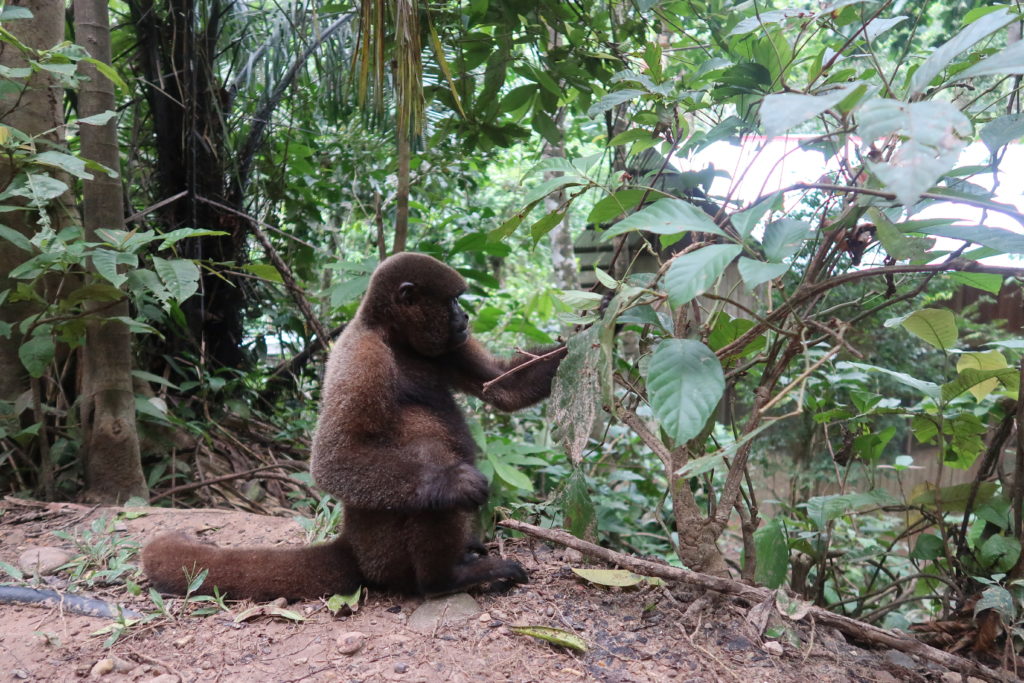
Keska exploring the leaves 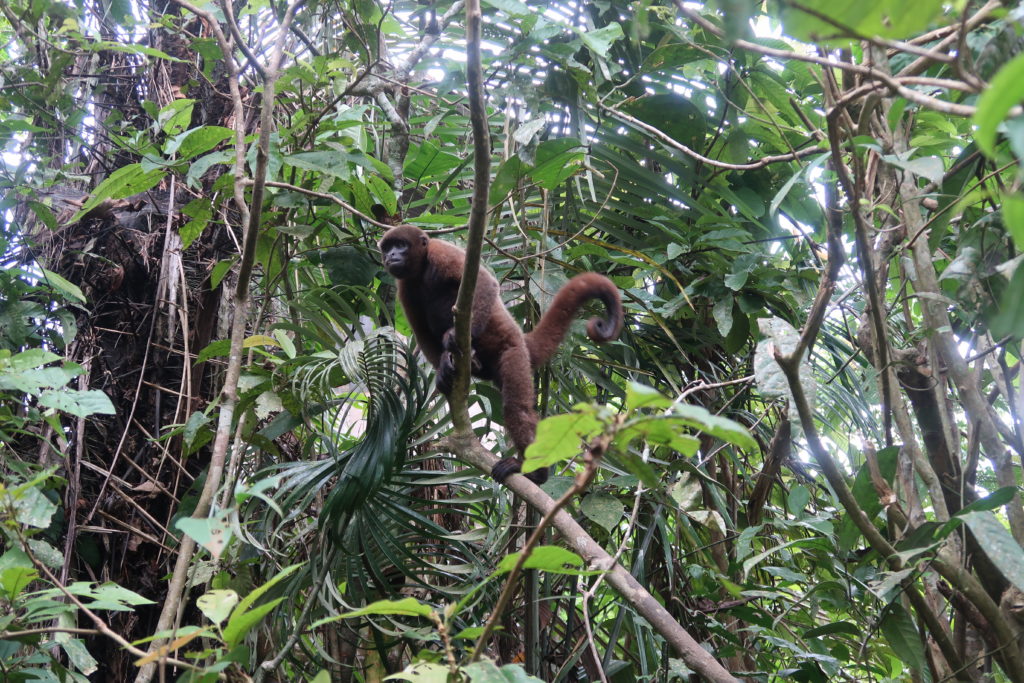
Keska back in the trees one month after her accident
Keska (juvenile female woolly monkey) has made incredible progress over the last month after sustaining a head injury in February. She became more mobile and started to climb once again and was moved from the family house to the clinic, then shortly after into the Lulu enclosure, where she was joined by juvenile male woolly monkey Panchin. The two were released together shortly afterwards. It was amazing how quickly Keska recovered and we were all so happy to see her climbing in the trees again, only a month after her head injury! We are all impressed with the resilience and strength she’s shown us.
The juvenile male spider monkey (now called Alessi) that we received from The Ministry of Fauna and Flora a month ago has been doing really well in the SUSTOAH. Upon arrival he was very shy, curling up in a ball and hiding under the t-shirts in his cage, but has since become very playful. He was introduced to the young male spider monkeys Miyo and Ashuke in the Lucia enclosure. The three seemed to be getting on well during the day, they had been seen sleeping together and eating from the same plate. Alessi seemed to have gained confidence under the influence of Miyo and Ashuke and we decided to make the move permanent. All three young spider monkeys are often seen cuddling together in their box and Alessi looks like he is enjoying spending time with his new friends.
At the end of the month, Biko (adult male large headed capuchin) made a trip to the SUSTOAH after sustaining some wounds outside. Volunteers heard some capuchins fighting high up in the trees and shortly after discovered that Biko was injured. The wounds were cleaned and had to be stitched up. He will now remain in the clinic to receive further care and will return to the outside soon, where we are confident, he will resume his usual mischievous behavior.
 Quarantine
Quarantine
All the new arrivals in quarantine have settled in nicely and are doing well. Amora, the adult chestnut-eared aracari, is a firm favourite already, her inquisitive and playful personality is perfect for enrichment. Volunteers are getting creative to make her stay in the quarantine building more enjoyable, before she can move into one of the outdoor aviaries. Enrichment is very important for all the animals, especially those in the SUSTOAH and quarantine building, as it stimulates them to engage in natural behavior, play and search for their food.
Yuno (adult male kinkajou) was released this month from Aguatena enclosure, his taste of freedom was short lived, as he returned a few days later with some wounds that required treatment. Kinkajous are territorial animals and fighting between males is common in the wild. As kinkajous are known to us to be tough animals, we were not surprised Yuno made a speedy recovery so we could open the hatch again for him to give it another try outside. We hope with the experience learned he will act more carefully in the future.
 Construction
Construction
The work on Rincay enclosure has continued and is making progress, although with all the rain fall it has not always been possible to work outdoors. We do hope that soon the enclosure will be fit for Bronco (male young adult capybara) who now resides in Momo enclosure, and a start can be made on the Ocelot and Margay enclosures. The extra rain means Douwe can work in the village welding doors and other prefabricated parts for the cat enclosures.
 Volunteer life
Volunteer life
This month we were lucky to receive a visit from Lisa, of Germany who has been with us as a veterinarian volunteer a few years ago. She is a very busy bee, she spent every day of her 2 week stay completing the huge task of checking the fecal samples of all animals in enclosures and many of those outside, here at Esperanza Verde. Her interest in parasites is extremely helpful to us, especially all her research at home in Germany on the parasite Prosthenorchis Elegans, from which many of the outside monkeys suffer. Her findings also made for some interesting dinner conversation with the volunteers, and a good reminder on the importance of hygiene when working with animals.
The mosquito crisis has continued this month and seems to be worse than previous years, with each new day bringing increasing numbers of our blood sucking friends. Volunteers showed great strength, battling through the day and maintaining the same high standards as always. With the end of rainy season approaching, we´re hopeful that we will get some relief soon. One very important lesson this month has taught us: DON´T SCRATCH!
There are quite a few changes happening in the volunteer group, with lots of goodbyes and some new faces popping up. Everyone is very thankful for all the hard work done by the volunteer team, and we wish you the best for your travels home.

